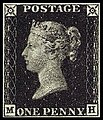Wikipedia:Selected anniversaries/May 1
This is a list of selected May 1 anniversaries that appear in the "On this day" section of the Main Page. To suggest a new item, in most cases, you can be bold and edit this page. Please read the selected anniversaries guidelines before making your edit. However, if your addition might be controversial or on a day that is or will soon be on the Main Page, please post your suggestion on the talk page instead.
Please note that the events listed on the Main Page are chosen based more on relative article quality and to maintain a mix of topics, not based solely on how important or significant their subjects are. Only four to five events are posted at a time and thus not everything that is "most important and significant" can be listed. In addition, an event is generally not posted this year if it is also the subject of the scheduled featured article or picture of the day.
To report an error when this appears on the Main Page, see Main Page errors. Please remember that this list defers to the supporting articles, so it is best to achieve consensus and make any necessary changes there first.
Images
Use only ONE image at a time
-
Orson Welles in 1937
-
World Columbian Exposition, Chicago, 1893
-
-
Empire State Building
-
Carol Ann Duffy
-
Penny Black postage stamp
-
Stephen Báthory
-
Anna Jagiellon
Ineligible
| Blurb | Reason |
|---|---|
| May Day | refimprove |
| 1893 – The World's Columbian Exposition, a World's Fair to celebrate the 400th anniversary of Christopher Columbus' discovery of the New World, opened in Chicago. | unreferenced section, refimprove section |
| 1991 – In Major League Baseball, Rickey Henderson broke the record for stolen bases on the same night that Nolan Ryan broke his own record for no-hitters. | Ryan: multiple issues |
Eligible
- 1576 – Stephen Báthory and Anna Jagiellon were crowned as the elected rulers of the Polish–Lithuanian Commonwealth.
- 1707 – Under the terms of the Acts of Union, the Kingdoms of England and Scotland merged to form the Kingdom of Great Britain, a single kingdom encompassing the entire island of Great Britain with a single parliament and government based in Westminster.
- 1776 – The secret society known as the Order of the Illuminati was founded by Adam Weishaupt and Adolph von Knigge in Ingolstadt, Bavaria, Germany.
- 1786 – The Marriage of Figaro, an opera buffa composed by Wolfgang Amadeus Mozart, premiered at the Burgtheater in Vienna.
- 1794 – War of the Pyrenees: France regained nearly all the land it lost to Spain the previous year with its victory in the Battle of Boulou.
- 1840 – The United Kingdom issued the Penny Black, the world's first official adhesive postage stamp.
- 1851 – The Great Exhibition, the first world's fair, opened in London's Hyde Park.
- 1885 – The original Chicago Board of Trade Building opened for business.
- 1897 – The Ramakrishna Mission was founded by Swami Vivekananda to serve as the humanitarian counterpart to the Hindu monastic order Ramakrishna Math.
- 1898 – The American Asiatic Squadron under Commodore George Dewey defeated the Spanish Pacific Squadron under Admiral Patricio Montojo at the Battle of Manila Bay, the first engagement of the Spanish–American War between Spain and the US.
- 1900 – A dust explosion at a coal mine near Scofield, Utah, US, killed at least 200 miners.
- 1925 – The All-China Federation of Trade Unions, the world's largest trade union with 134 million members, was founded in Guangzhou, China.
- 1931 – New York City's Empire State Building, at the time the tallest building in the world, opened.
- 1947 – Italian separatist Salvatore Giuliano and his gang fired into a crowd of May Day marchers near Piana degli Albanesi, Sicily, killing 11 and wounding 33.
- 1956 – A doctor in Japan reported an "epidemic of an unknown disease of the central nervous system", marking the official discovery of Minamata disease.
- 1960 – Bombay State in India was partitioned into Gujarat and Maharashtra along linguistic lines.
- 1974 – Argentine President Juan Perón expelled the Montoneros from a demonstration in the Plaza de Mayo in Buenos Aires, forcing the group to become clandestine and later a target of the Dirty War.
- 1994 – Brazilian racing driver Ayrton Senna, a three-time Formula One World Champion, was killed in a crash during the 1994 San Marino Grand Prix.
- 2003 – Invasion of Iraq: Aboard the USS Abraham Lincoln in front of a "Mission Accomplished" banner, U.S. President George W. Bush declared that "major combat operations in Iraq have ended".
- 2009 – Carol Ann Duffy was appointed Poet Laureate of the United Kingdom, the first woman, the first Scot, and the first openly bisexual person to hold the position, as well as the first laureate to be chosen in the 21st century.
Notes
- Woolworth Building appears on April 24, so Empire State Building should not appear in the same year
May 1: International Workers' Day; Beltane in Ireland and Scotland; Law Day and Loyalty Day in the United States
- 880 – The Nea Ekklesia church in Constantinople was consecrated, and went on to set the model for all later cross-in-square Orthodox churches.
- 1753 – Carl Linnaeus (pictured) published his Species Plantarum, which, with his earlier work Systema Naturae, is considered the beginning of modern botanical nomenclature.
- 1865 – Brazil, Uruguay and Argentina signed a treaty creating an alliance against Paraguay in the War of the Triple Alliance.
- 1941 – Citizen Kane, a widely acclaimed film by actor and director Orson Welles, premiered.
- 1985 – Labor groups in the Philippines established the Bagong Alyansang Makabayan, a political coalition and communist front, in order to challenge the dictatorship of Ferdinand Marcos.







